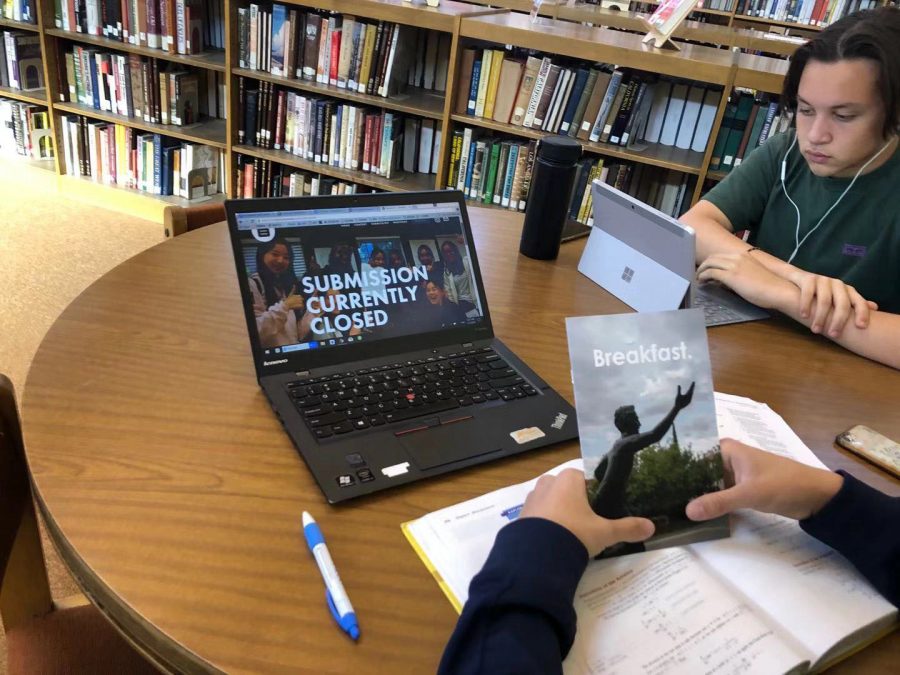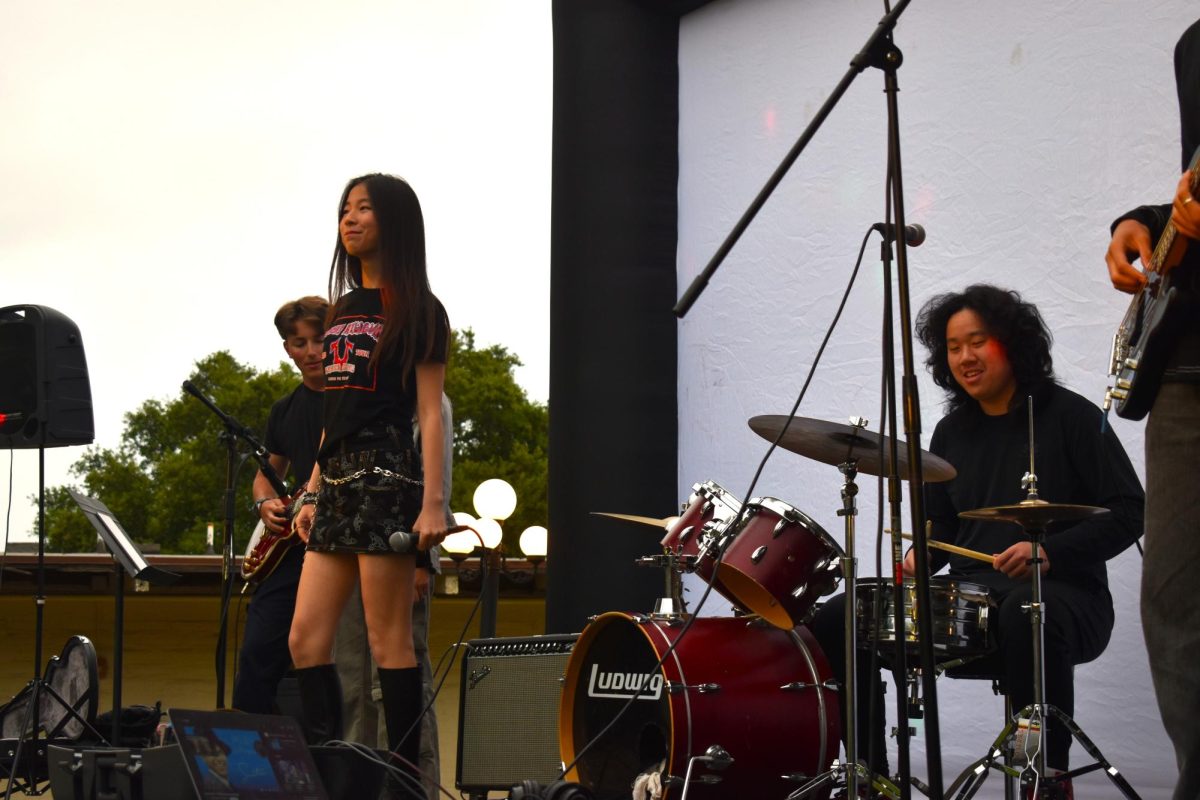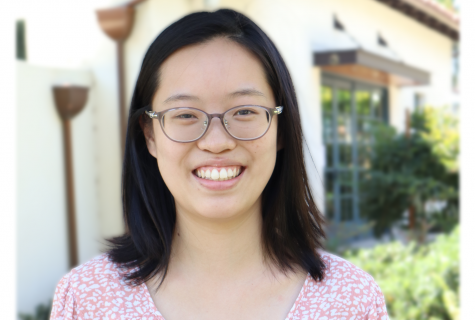What comes to your mind when you hear the word “breakfast”? According to the official website of the Webb literary magazine, “breakfast is what we need when we wake up to give us fuel for the day. It is hot, good for our brains, a daily routine of ours, individual, community, and is a fresh start.”
Named after the first meal of the day, Breakfast, the literary magazine at Webb embodies the multiple connotations and denotations of the word. Breakfast inspires Webb students to “submit creative work that encompasses their imaginations, passions, beliefs, talents, and unique voices.”
The submission guidelines encourage students to submit anything from poems, art, photography, short stories, book reviews, interviews, to multimedia works.
During the first publication cycle in the spring of 2019, Breakfast received some great submissions and published hard copies of the first issue contest finalists, with Sydney Wuu’s (‘20) A Half Tamales, Half Cheeseburger Kind of Guy winning the fiction contest, Garrett Goodrich’s (‘19) The Letter of Paul to the Romans’ winning the poetry contest, and Nina Luo’s (‘22) art winning the art contest.
Dr. Wendy Maxon, humanities department faculty, Dr. Kevin Riel, the new adviser of the magazine, and Dr. Ardina Greco, fine arts department faculty, were the judges for the fiction, poetry, and art contest, respectively.
Nina, winner of the art contest, said, “I have always been passionate about art, and I decided that Breakfast would be a great platform for me to share my work with the rest of the community.”
Laura Caldwell, author of the two short stories, The One Time I Ever Went Outside and A Garden of Stone, said, “The emails about Breakfast on STAS caught my attention. I decided to submit my writings because I enjoy writing, even though I was nervous about showing people my work.”
Behind the success of the first issue, the Breakfast team accumulated important experiences and learned to do their tasks efficiently.
Nnenna Ochuru (‘21), the copy editor and co-book review/interview editor of the magazine, said, “The publication process was very collaborative and enjoyable. We had very different interpretations of the piece, and we came up with envisions of the magazine… it was a very fun experience hearing everyone’s voice.”
Dr. Elizabeth Cantwell, the previous adviser of the magazine, said, “The publication process went pretty well considering we have never done this before… Everyone was on the same page of what the hope of the publication was and how to get it done… I knew there would be a lot of limitations in terms of space and finance, but we managed to do a limited release of physical copies, which was very exciting… [the literary magazine] ended up being a very happy and joyful space where everyone was working for a common goal and everyone’s personality was coming out.”
Although Breakfast lost Dr. Cantwell as an adviser, Dr. Riel, who has been in the game of literary publications for more than ten years, will take on the role of advising the literary magazine.
Dr. Riel said, “I think what I can bring to the team is mainly guidance; Breakfast is a student-led initiative, but with extensive background experience in literary production, I can add a lot of institutional knowledge to the process. A way that I can contribute is to help build a strong leadership team and a strong institutional framework.”
The Breakfast magazine has already started accepting early submissions for the next publication cycle, which will take place in the spring of 2020 as an afternoon activity.
Nnenna said, “Reaching out to the community, having more promotions, and getting more submissions are important for the next publication cycle.”
Dr. Cantwell said, “Getting more submissions and more voices from the Webb community would be something exciting to see. I think we did a pretty good job last year getting a good number of submissions. But I think there are more people out there with something to give, and I love to see them seeing Breakfast as a place where they can turn in their work confidently.”
Celebrating creativity and imagination, Breakfast aims to become a place where students shake off their academic stress and simply relax and share their talents.
Dr. Riel said, “The Webb life is very intellectually-oriented, but it is also important to affirm creativity as well as intellectual rigor. Breakfast will help develop ways for us to celebrate not only how smart we are, but also how creative, imaginative, and daring we are… There are a lot of powerful and imaginative minds on this campus. Unfortunately, some of their work is almost imprisoned by their processors, and Breakfast is our opportunity to give them an audience and even finding larger audiences beyond Webb.”
Dr. Cantwell said, “I think Breakfast is a celebration of students in a nonacademic way… Allowing the creativity of students to come out is something we find it hard to achieve in the classroom.”
Although Breakfast is no longer a complete stranger to the community, it is still in the foundation-building phase.
Dr. Riel said, “I think this year the biggest goal for the next publication cycle is to focus on examining who we are, the work that we do, and the systems that we use. Next year we can do something more ambitious.”
As the Breakfast staff members roll up their sleeves and get into the working cycle, students are also getting excited about turning in submissions to showcase their talents.
Dr. Riel said, “I am very excited to get to know the team. Now I am ready to start reading some poems, short stories and art submissions. This is my favorite thing to do: I have done it several years without payment, but I would still do it. It is a labor of love, and it is very pleasurable.”
Motivated by the offer of free donuts, Rachel Bai (‘22), who heard about Breakfast from her friends on the team, said, “I am planning on submitting some short stories and art work this year.”
The team is prepared to return to their “love labor” and review submissions. Are you ready to turn in your submissions and spark creativity around campus?









